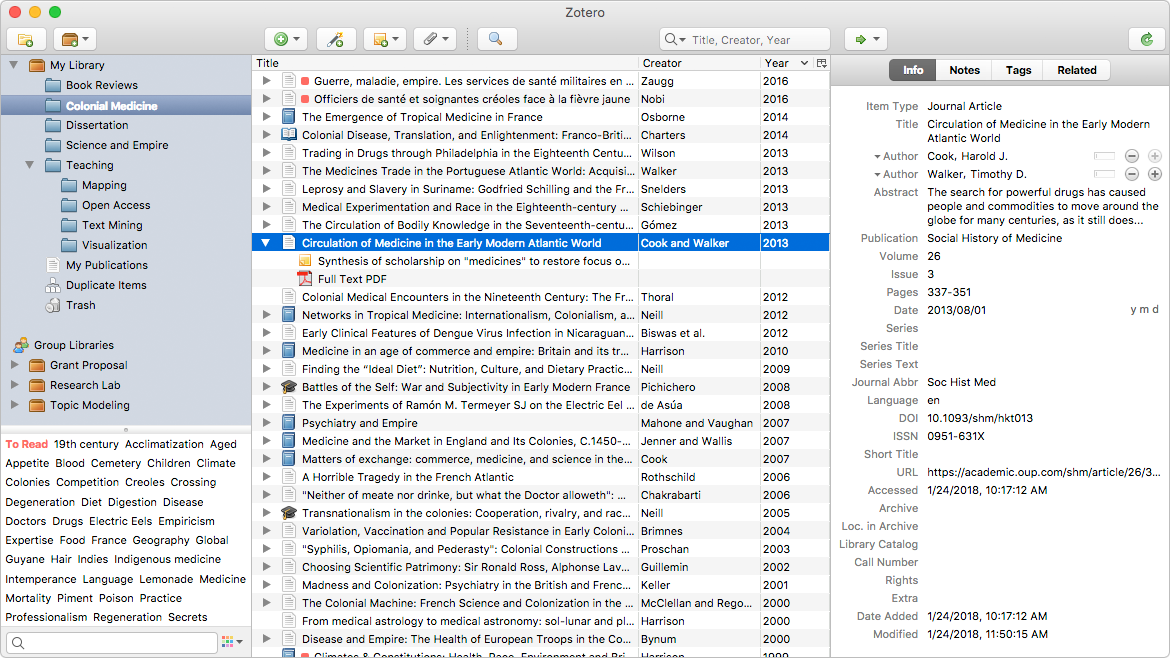Zotero is one of the best and most useful pieces of software available for academics. It is free, regularly updated, and can be used as a bibliographic organizer, citation manager, and document database. It integrates well with a range of catalogs and sourced databases, and it can produce correctly formatted and editable citations in Word, Open Officer, and Google Docs. Because of its data architecture it can also be integrated into other software. For me, that has proved particularly valuable in how I use the notetaking and text drafting program, Obsidian.
There are many other programs out there like Zotero (e.g. Endnote, Refworks, etc.) and if you’re already using them and they satisfy your needs then I wouldn’t necessarily invest in anything new. If you haven’t chosen one yet however, Zotero is an excellent choice. Again: it’s free.
Data synching
Zotero allows you to keep your citation database bibliographic database and attached documents via a variety of cloud services. Personally, I pay for Zotero’s unlimited sync storage which, at $120 per year, is both quite reasonable for the service it provides me and helps support ongoing development of this amazing (again, free!) tool.
I currently have about 13,000 individual bibliographic entries in Zotero database and about 15GB of documents (mostly PDFs) that are synched across my home and work computers and are available to me from a browser-based interface from any computer. I am never without my materials.

